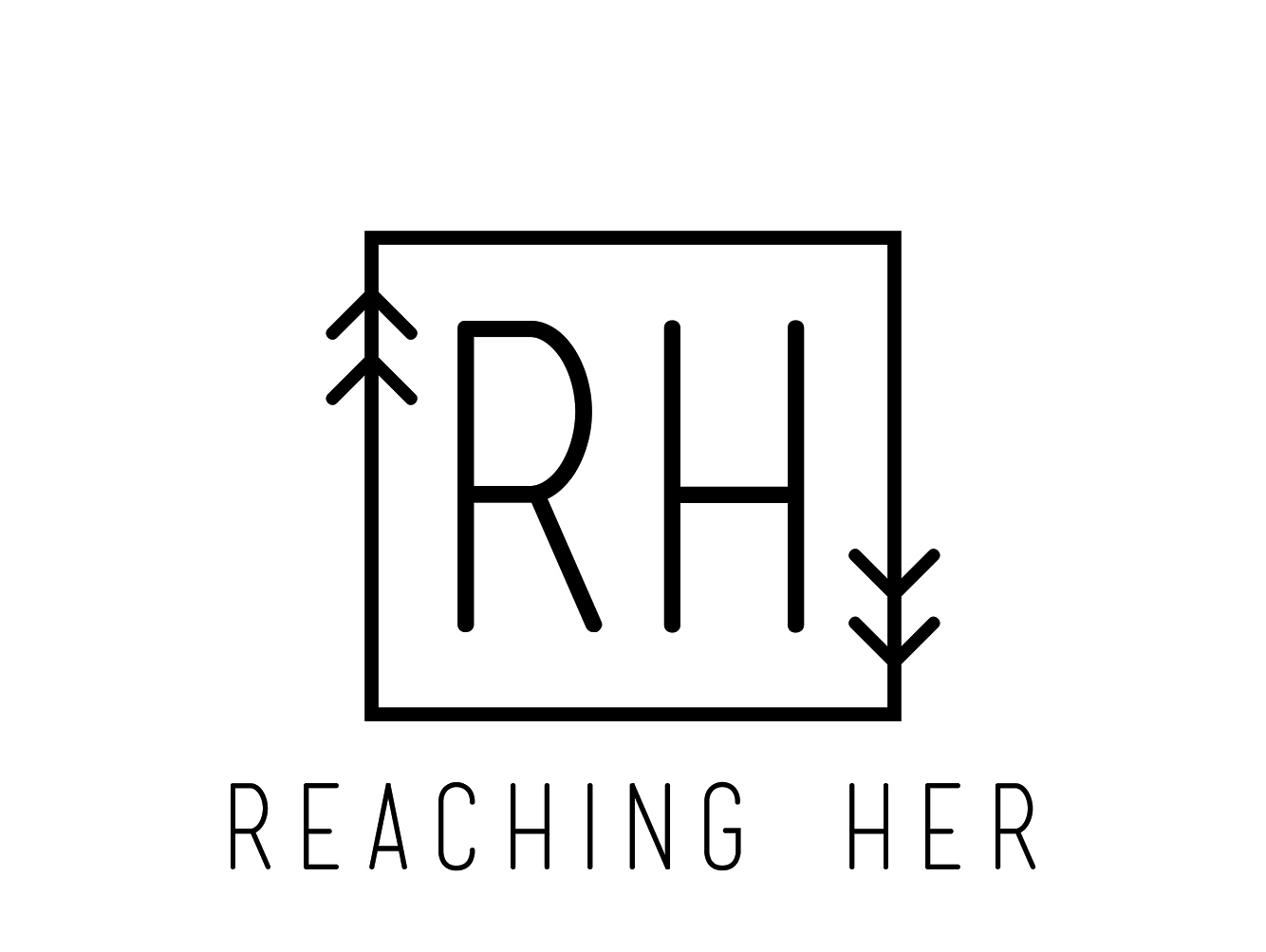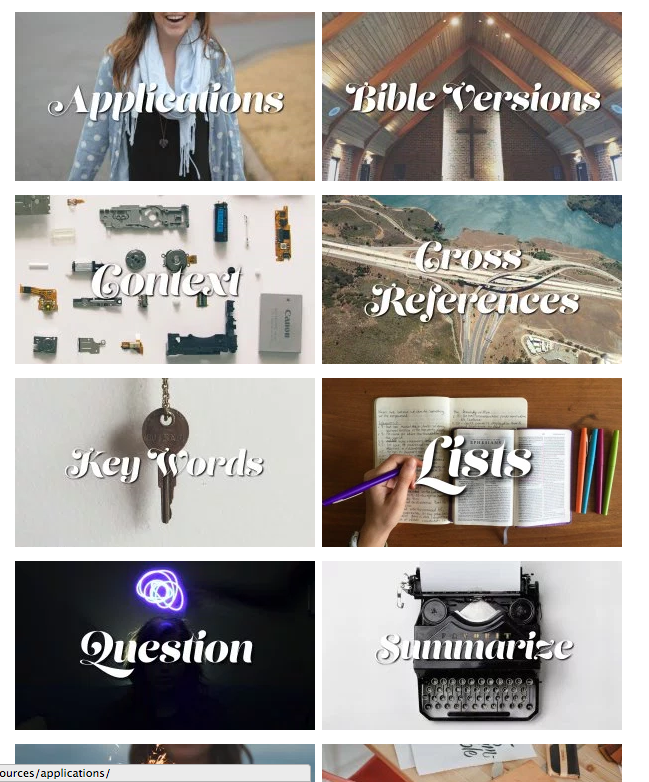Tools In A Toolbox
 Have you ever read a passage from the Bible and not grasped one single thing?
Have you ever read a passage from the Bible and not grasped one single thing?
I have.
Well, I used to.
Up until my mid-twenties that described my usual Bible study or quiet time or prayer journaling or whatever buzzword we are using these days. I claimed Christ, I sang His praises, I went to church, I worshiped with the best of them. But when I sat down with God’s Word, I just didn’t know what to do.
I read. I prayed. I just didn’t grasp much, you know?
I come across a lot of women who feel the same way. They want to know God and His Truth through His Word, but there seems to be a gap in their knowledge. They know the importance of learning about God and His character, but they don’t know how to interact and engage with scripture. And because of this lacking, the Word becomes a mystery - something we depend on others to explain or break down.
And that, my friends, is a travesty. Because that is not what God intends.
In my case, all it took was learning a few skills that helped me to truly interact and engage with scripture. They are all just simple tools, but when used prayerfully, they can manifest into a wealth of knowledge. And this wealth of knowledge can be used by God to truly transform our lives. As Paul wrote to Timothy:
"All Scripture is breathed out by God and profitable for teaching, for reproof, for correction, and for training in righteousness, that the man of God may be complete, equipped for every good work." 2 Timothy 3:16-17
Hopefully you know by now that the passion of Reaching Her is Biblical literacy. One of the ways we hope to aid you in your pursuit of that goal is by explaining some of the tools we use for Bible study. We’ve even dedicated a whole portion of our website - the Resources page - to this purpose. There you can find simple explanations of a variety of different tools you can use in your daily Bible study.
But if you’re anything like me, you might ask the question: “How do I know when to use which tool?”
If you’re starting from scratch, I’d recommend downloading our Titus study that we will dive into September 6, 2015. We will walk you through how to use the tools as we study the entire book of Titus together.
But in the meantime, here’s a little cheat sheet for some of the tools we use.*
In the beginning…. Tools for when you first interact with a passage of scripture:
- Question - A mental interrogation of the Word, start by asking questions as you read. It will help you notice characters, ideas, placement, etc.
- Key Words - Find the focus of a passage by looking for repeated words or phrases. Mark them as you go.
- Lists - Make a list of what the text is saying each time a key word is mentioned.
- Summarize - Go verse by verse and write a short paraphrase for each. Then group verses together in sections. Finally, write a summary sentence for the whole passage.
Going further…. Tools for taking your observations to the next level.
- Cross References - Look up verses outside the passage you are studying. Most Bibles list these in the margins or footnotes.
- Word Study - Look up the original Hebrew or Greek definitions. These can easily be found with an internet search.
- Truths - Create a list of the true things about God, His character, and yourself that are communicated in the passage.
- Applications - Take the list of truths and apply them to your life. These can be questions or “I will” statements.
*For further explanations of each of the above see our Resources Page.
Although we love our little list of methods, it is definitely not exhaustive. There are a ridiculous amount of different techniques to study the Bible that you may already use or will run across.
Remember, there is no right or wrong when it comes to which method to use, and there is no formula to figure out which technique works the best with each passage. Honestly, some techniques fit people and the way they process better than others. That being said, what is important is that you find what works best for you and that you are willing to use trial and error along the way. They are all just tools in your toolbox.
This is what I do, and it has changed everything. I don’t go to the Bible helpless anymore. I prayerfully open His Word, ask for His guidance, and then use the tools I’ve learned. And I can say for myself that God never ceases to teach me in this way. Every time I open His Word and engage with it; He teaches, He reproves, He corrects, He trains, He equips. And I am made more complete for His good work.
 Amy Bufkin has loved Jesus for as long as she can remember. Even though she basically lived at her local church growing up, her faith and relationship with The Lord was incredibly shallow until her early twenties. It was then Amy learned how to study her Bible, began to truly commune with God, and her shallow faith began to deepen as she got to know her Lord and Savior. Now her passion is to communicate the same truths that changed her life to young women in as many ways as possible. You can find her on Instagram | Facebook
Amy Bufkin has loved Jesus for as long as she can remember. Even though she basically lived at her local church growing up, her faith and relationship with The Lord was incredibly shallow until her early twenties. It was then Amy learned how to study her Bible, began to truly commune with God, and her shallow faith began to deepen as she got to know her Lord and Savior. Now her passion is to communicate the same truths that changed her life to young women in as many ways as possible. You can find her on Instagram | Facebook

